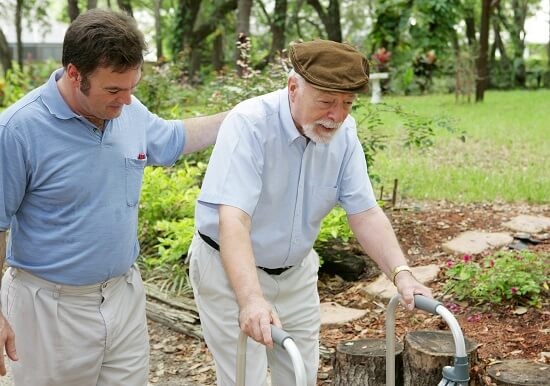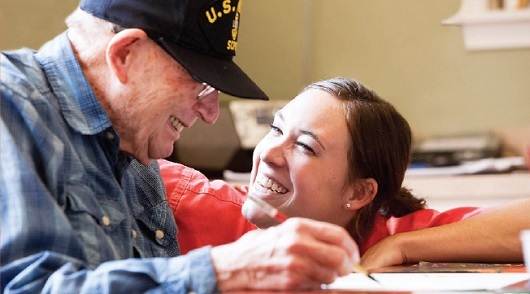 According to the American Stroke Association, stroke is the number five cause of death and the leading cause of long-term disability in the United States. May is National Stroke Awareness Month, and ManorCare Health Services – Bethel Park, Greentree, Monroeville, North Hills, Northside, Peters Township, Pittsburgh, Shadyside and Whitehall Borough are honoring the occasion by raising awareness of the risk factors and how post-acute care can help people recover after experiencing a stroke.
According to the American Stroke Association, stroke is the number five cause of death and the leading cause of long-term disability in the United States. May is National Stroke Awareness Month, and ManorCare Health Services – Bethel Park, Greentree, Monroeville, North Hills, Northside, Peters Township, Pittsburgh, Shadyside and Whitehall Borough are honoring the occasion by raising awareness of the risk factors and how post-acute care can help people recover after experiencing a stroke.
A stroke can happen to anyone of any age, gender or race, though women are uniquely affected. Many of the risk factors are manageable, such as high blood pressure and cholesterol, weight, cigarette smoking and heart disease. However, risk factors such as increasing age, heredity and a prior history of strokes cannot be controlled. The good news is that 80% of strokes can be prevented by lifestyle changes such as exercising, drinking alcohol in moderation and eating a healthy diet low in sodium and fat.
Strokes occur when the blood supply to the brain is interrupted by blood clots or a hemorrhage. Denied of a blood supply, brain cells begin to die. Unlike other cells in the body, brain cells do not replace themselves, and damage to the body and mind can be permanent. Victims of stroke may be paralyzed, unable to speak or comprehend what others are saying, suffer memory loss or be confused.
After a hospital stay for a stroke or another medical issue, patients are often discharged home but are not always ready to resume daily activities, properly care for themselves or navigate their homes and stairs safely. Post-acute care centers, like ManorCare; use state-of-the-art equipment in their skilled nursing and rehabilitation centers to help patients transition between the hospital and home.
One of the tools utilized to help stroke patients is the Omnicycle™, a unique cycling system that offers motor-assisted exercise options for upper and lower extremities. The omnicycle is able to automatically “sense” to what degree a patient is able to exercise independently and will provide powered assistance according to their needs. This allows therapists to help patients early in the recovery process to begin to improve function, increase range of motion, strength, endurance and muscle control. As the patient’s strength and skills improve, the smart motor in the omnicycle will automatically adjust to encourage the patient to do more work. During use it also provides visual feedback to the patient and objective information to the therapist. The interdisciplinary team at ManorCare skilled nursing and rehabilitation centers use this technology to help patients who suffer from post-stroke deficits, joint replacement and other orthopedic conditions, muscle re-education, Parkinson’s disease, Multiple Sclerosis, COPD and chronic heart failure.
ManorCare Health Services serves the Pittsburgh area, and is part of the HCR ManorCare family. The HCR ManorCare health care family comprises centers that are leading providers of short-term post-acute services and long-term care.


Comments